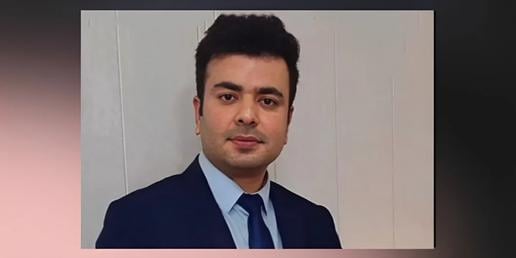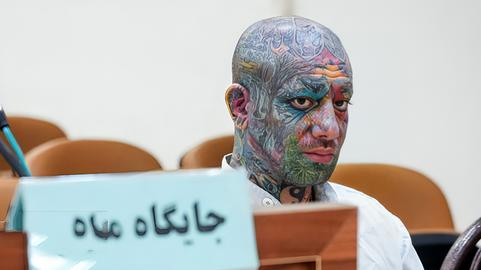Since the lifting of the European Union’s nuclear-related sanctions against Iran in January, Iranian President Hassan Rouhani has pursued a long-planned European spending spree, and set about lining up new clients for Iranian energy. First he travelled to Paris hailing a “new chapter” in Iran-France relations, agreed to purchase $24 billion worth of Airbus Jets, and to pursue a substantial joint venture with the carmaker Peugeot. Then he was off to Rome, where the Italian decision to cover up nude statues for his benefit slightly eclipsed news of a further $22 billion in trade deals in transport, metals and energy. This week, Greek Prime Minister Alexis Tsipras met with Rouhani, becoming the first western leader to visit Iran since the lifting of sanctions. Greece has also become the first country to buy Iranian crude oil in the post sanctions era.
Tsipras said Greece would become a “trade bridge” between Iran and the European Union. Apart from highlighting Greece’s geographical advantage where Iran is concerned, his comment hit upon a greater truth about Iran’s relations with the EU — that it prefers southern European countries to northern members of the P5+1 team that negotiated the recent nuclear deal.
Iran’s leaders think of Britain as a wily old imperial power and an ally of the US, France as a supporter of Saddam Hussein during the Iran-Iraq war and a present-day opponent of their Syrian ally Bashar Al-Assad, and Germany as the country whose courts issued a damning verdict against Supreme Leader Ali Khamenei and former president Hashemi Rafsanjani over the murder of Iranian Kurdish exiles in Berlin in 1992. For Iranian officials, doing business with southern Europe makes a lot more sense.
“You Speak it Farsi”
Iran and Greece have been in contact since antiquity. Although war and Greek conquest were major features of the relationship, so were multigenerational cultural relations. “Although the ancient relation was a bitter one based on war, there are no bad feelings between the two people,” says Andreas Andrianopoulos, a former minister in several Greek governments. Greeks, he says, feel cordial towards Iran because of historical contacts between the two nations. “If we talk about Persia and Greece, it sounds very attractive. In Greek, for example, when we want to say that a language is very difficult, and you speak it fluently, we say, ‘You speak it Farsi.’ That gives you the depths of the contact between the two nations.”
Greece, Andrianopoulos says, has long sought closer economic ties with Iran. “When I was in charge of the Ministry of Energy and Development, I remember we had discussions with the government of Iran for the purpose of maybe creating a hub for Iranian petrol which could be transported to Europe via Greece. Of course, that did not go well after we had the sanctions.” Now, he says, similar plans have resurfaced. “There is an effort by Greece to become part of an essential energy corridor between the east and west. It is an opportunity which I think Greece will grasp, and try to explain to Iran that it is in their interest to use Greece as a gate into Europe.”
“Nobody thinks Italy is After Regime Change”
Italy, too, has long been an attractive interlocutor for Iran when diplomacy has been on the agenda. Cordial relations under the Islamic Republic go back to the presidency of Mohammad Khatami (1997 to 2005). “Italy was the first country, the first government to welcome the election of Khatami,” says Roberto Toscano, who served as Italy’s ambassador to Iran from 2003 to 2008. “We immediately said, to paraphrase a famous saying, ‘We can do business with this guy.’” While Toscano sees President Hassan Rouhani as more of a centrist than a reformist, he has noted with interest the support Khatami-era reformists have given Rouhani. “We draw the conclusion that this government is for real, that with all the limitations, the problems, the possibility of going backward, that it wants to abandon all the rhetoric that was so damaging.”
While Italy’s foreign policy is in line with the EU on matters such as opposition to the death penalty and defence of human rights, NATO membership and Israel’s security, Toscano says, Iran has long seen Italy differently. “I was really amazed sometimes at the access I could have, even more than my northern colleagues. I like to joke that it's difficult to imagine that Italians have a conspiracy against your interest, or that they are plotting something. Nobody thinks Italy is after regime change. With Italians, they know that what you see is what you get.”
Italy sees real value in renewed relations with Iran both as an energy partner and as an important interlocutor in the Middle East. “We as Italy go back to where we always wanted to be, and for us it's a proliferation of initiatives,” Toscano says. Today in Italy, he says, there are numerous conferences of businessmen and of legal experts studying how to develop economic relations with Iran. “Things are actually moving. This does not mean that Italians are convinced that the path is irreversible, that the path is easy. We are all keeping an eye on the elections, and on the pre-elections, and on the vetting of all the candidates and all that. Iran has always surprised, for the good, and for the bad. We are positive, but to a certain extent also cautious.”
The Syrian Factor
No European country has been more affected by the war in Syria — in which Iranian forces support Syrian President Bashar Al-Assad — than Greece. Tens of thousands of migrants have reached Greek islands by sea since the Syrian Civil War began in 2011, and Greece, along with the rest of Europe, has struggled to cope. But whereas western European countries like France and Britain may fault Assad and his Iranian and Russian allies for exacerbating the crisis, Andrianopoulos says Greece should stay out of it.
“I don't believe the refugee crisis is the fault of Russia or Iran, I don't think that at all,” Andrianopoulos says. “Besides, we have to keep in mind that the flow of refugees in Greece since last year comes after the exclamations of ISIS, especially its leader Abu Bakr al-Baghdadi, who mentioned in February 2015 that in the next couple of months, they are going to initiate a flooding of Europe with about 300,000 refugees. That was before any involvement of Russia, and before Iran had done anything to try to confront ISIS.” Greece doesn’t appear to have an official position on Iran’s intervention in Syria, Andrianopoulos says, but most ''moderate'' European countries believe Iran can and will have impact. “If Iran doesn't play a role,” he says, “I don't see how some of these militants are going to be tackled. They have to have people against them on the ground being of course Muslims, and not Christians.”
Toscano, meanwhile, is certain no side in Syria can win militarily. “At the first stage, it was ‘Assad must go,’ and so people said, ‘He's almost a pushover, so let's not deal with him.’ That was a mistake. But now, there is the opposite danger. Since, thanks to the Russian support, Assad really looks stronger, although not so strong as to eliminate all the opposition, people in Damascus are saying, I'm sure, ‘Let's push some more, let's now really negotiate.’ This is a real tragedy. We welcome every signal, and some signals came out of Tehran, too, that the real purpose is not saving Assad as a person, but reaching a balance of interests. It is not so easy, because the interlocutor on the anti-Assad side is not so easy to identify. I think everyone should reduce their military presence, but it can only be if it is balanced.”
Rouhani Needs Europe, Europe needs Iran
The years of EU sanctions against Iran, which followed years of provocation and poor diplomacy from the government of Mahmoud Ahmadinejad, gave Iran and these southern European countries time to miss each other. For Rouhani’s government, renewed relations with Europe signal an era of reintegration with the global economy, of modernization, and of much-craved respect from well-respected countries. For Europe, Iran itself is a “bridge” or “gateway” to Central and South Asia, and a powerful interlocutor in a region whose ailments can can also threaten Europe. While long-time Iran-watchers have seen the fragile architecture of relations collapse time and again, it is in the nature of diplomats to hope that this time, things won’t go south.
Related articles:
Covering up statues in Rome: Servility, denial of free expression, or clever political move?























comments